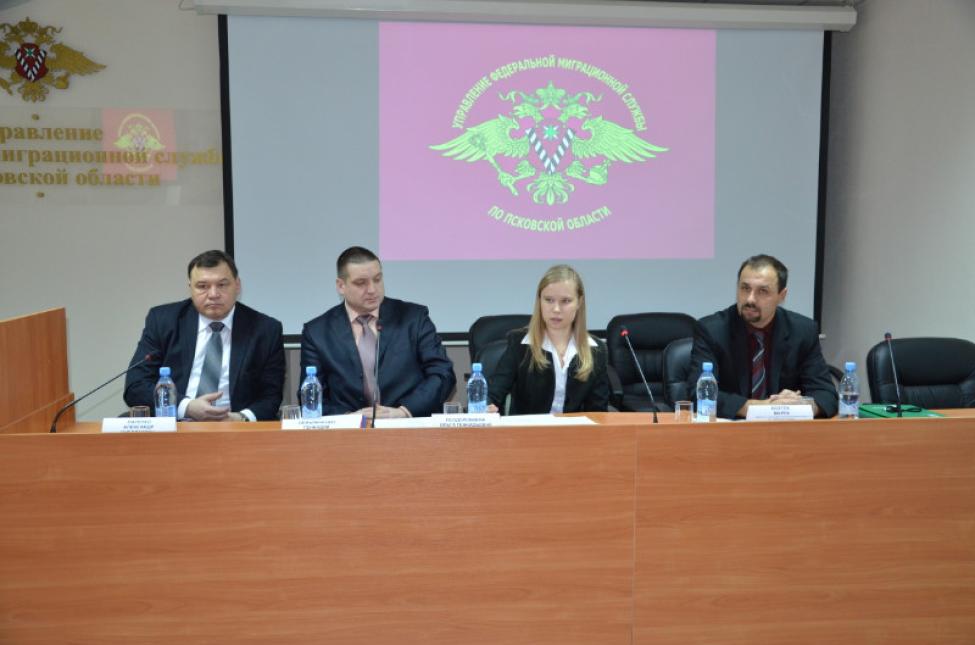-
Who We Are
WHO WE AREThe International Organization for Migration (IOM) is part of the United Nations System as the leading inter-governmental organization promoting humane and orderly migration for the benefit of all, with 175 member states and a presence in over 100 countries. IOM has had a presence in the Russian Federation since 1992.
About
About
IOM Global
IOM Global
-
Our Work
Our WorkAs the leading inter-governmental organization promoting since 1951 humane and orderly migration, IOM plays a key role to support the achievement of the 2030 Agenda through different areas of intervention that connect both humanitarian assistance and sustainable development.
Cross-cutting (Global)
Cross-cutting (Global)
- Data and Resources
- Take Action
- 2030 Agenda
Training on Cultural Orientation for Personnel of the FMS Russia Centre for Accommodation of Persons Subject to Readmission in Pskov
On December 19-20, 2011 within the EU project «Support to Implementation of the EU Readmission Agreements with the Republic of Moldova, the Russian Federation and Ukraine: Facilitation of Assisted Voluntary Return and Reintegration» (SIREADA) implemented jointly by IOM Moscow and the FMS of Russia, a training workshop for personnel of the FMS of Russia special institutions for accommodation of persons subject to readmission was conducted.
Participants in the training workshop included the personnel from the FMS Russia Citizenship Department, personnel of the regional offices of the FMS from St. Petersburg, Pskov, and also personnel from Pskov Center for accommodation of persons subject to readmission.
Mr. Marek Osetek – expert from Poland, Director of Migrant Accommodation Center in Przemysl (Poland) with great practical experience in this area, and expert–psychologist were invited as trainers.
The main aim of the training was theoretical and practical preparation of personnel from Pskov Center for accommodation of persons subject to readmission and also personnel of the regional offices of the FMS in the corresponding regions of the Russian Federation to receiving and working with third country nationals and stateless persons which are transferred to the Russian Federation in accordance with entered into force on 1 June 2010 the third country nationals and stateless persons’ clause of the EC-RF Readmission Agreement.
During the training the following topics were covered:
• Experience in organizational management of Migrant Accommodation Center in Przemysl (Poland).
• Rights and obligations of foreigners and its implementation.
• Cultural and post migration shock.
• Culture of foreigners and its meaning in internecine relationships and in contacts with the staff of the centre.
• Religion and its meaning in management of foreigners.
• Meals – its meaning in the centre for migrants.
• Body language – its meaning in relationships between foreigner and staff.
• Relationships between staff and their perception by foreigners.
• Constructive communication skills.
Thus, the participants of the training could not only improve their knowledge of legal relations «foreigner – staff of readmission center», but also learn a number of psychological techniques which can help improve relationships between staff of centers and, as a consequence, can help make work with migrants more organized and efficient.

